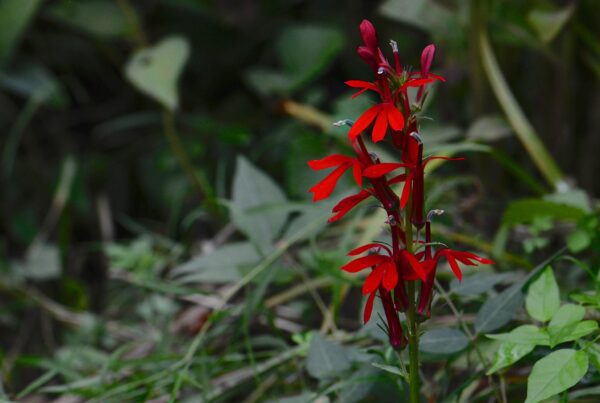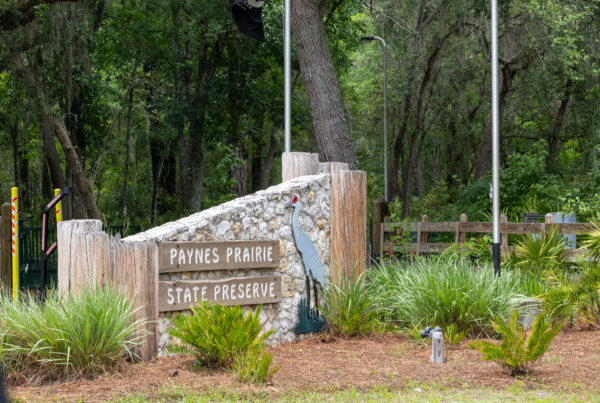
The Florida Wildlife Federation was proud to participate in the annual International Coastal Cleanup, a global effort to remove trash from our beaches, waterways, and oceans.
Across Florida, our staff members rolled up their sleeves and joined volunteers from all walks of life to help restore our coastlines and protect the marine ecosystems we cherish.
Why Coastal Cleanups Matter
Coastal areas are home to a wide variety of wildlife and play a vital role in maintaining the health of our oceans. Unfortunately, plastic pollution and marine debris have become one of the greatest threats to these ecosystems. Participating in coastal cleanups helps reduce the harmful impact of trash on marine life and keeps our beaches beautiful for future generations.

Photo of Snowy Plovers by Priyanka Arora
We’re proud to share that our team was spread out across the state, joining different cleanup efforts in a variety of coastal communities. Here are a few stories from the Federation staff who participated this weekend:
Federico Acevedo, Digital Communications Manager
Location: Bill Baggs Cape Florida State Park
“I had the chance to attend the International Coastal Cleanup at Bill Baggs Cape Florida State Park, hosted by volunteercleanup.org, along with two of my cousins. From 9am to 11am, we walked along the beach and the seawall, collecting trash. One of the most upsetting finds was the amount of fishing line scattered around. It was a stark reminder of the impact that careless waste disposal has on our marine life. Despite this, it felt great to contribute to the effort, and seeing the park cleaner was rewarding.”
Casey Darling Kniffin, Conservation Policy Director
Location: Jensen Beach Park
“As the volunteer co-lead of the River Kidz, I joined youth conservationists at Jensen Beach Park where young people gathered to participate in the International Coastal Cleanup. After a week of strong surf, we found piles of seagrass and algae in the wrack line teeming with microplastics. While cleanups are a great way to build community and prevent wildlife from ingesting plastic in the near term, reduction in single use plastic production is sorely needed to prevent plastic from entering into the marine environment to ensure a healthy future.“
Marney Richards, Education and Outreach Coordinator
Location: St. Marks National Wildlife Refuge
“Wakulla Beach is part of St. Marks National Wildlife Refuge, located at the north end of Goose Creek Bay. We joined a small group of volunteers early Saturday morning when the day was still cool with a breeze. People worked along the dirt road leading to the beach, in small, wooded areas, and along the shore. There was not too much trash and most people were done in about 90 minutes. Beautiful morning and a good cleanup effort!”
Becky Dotson, Operations Director
Location: Otter Lake & Ochlocknee Bay Bike Trail
“We checked in at Wooley Park in Panacea, FL and assigned to the Otter Lake Recreation Area. As we approached, we passed a large group that was already busy cleaning up the area and found very little trash, so we drove just a short distance and started cleaning up along the bike trail which runs along Coastal Highway 98. We covered a 2 mile stretch along the bike trail. We found a lot of cans, bottles and broken up Styrofoam coolers that probably flew out of boats or trucks on the way to the coast. The trail is a fantastic addition to Wakulla County with little bridges that pass over marshy areas that are vital parts of the coastal habitat. The area was just stunning with the fall wildflowers in bloom and the thousands of butterflies and other pollinators.“
Throughout the day, FWF staff and volunteers removed countless pieces of litter — everything from plastic bottles and straws to fishing gear and cigarette butts. These seemingly small items can have a devastating impact on marine life, as animals often mistake them for food or become entangled in debris. While it was rewarding to see the tangible results of our efforts, it was also a reminder of the scale of the problem we’re facing.

Photo of beach litter by FWC
The International Coastal Cleanup may be one day each year, but the work doesn’t stop there. At FWF, we are committed to reducing marine pollution and protecting Florida’s coasts year-round. By advocating for stronger policies, promoting responsible waste disposal, and encouraging public participation in conservation efforts, we can make a lasting impact.

How You Can Help
Even if you couldn’t make it to a cleanup for this event, there are plenty of ways you can contribute to cleaner coasts:
- Reduce your use of single-use plastics and properly dispose of your trash.
- Join a local cleanup effort or organize one in your community.
- Support legislation that addresses plastic pollution and promotes conservation.
This year’s International Coastal Cleanup was a success, and we’re incredibly proud of the efforts made by our staff and volunteers across Florida. Every piece of trash removed is a step toward a healthier planet, and we’re grateful to everyone who took part.
Together, we can ensure that Florida’s beaches and coastal waters remain healthy and beautiful for generations to come.













